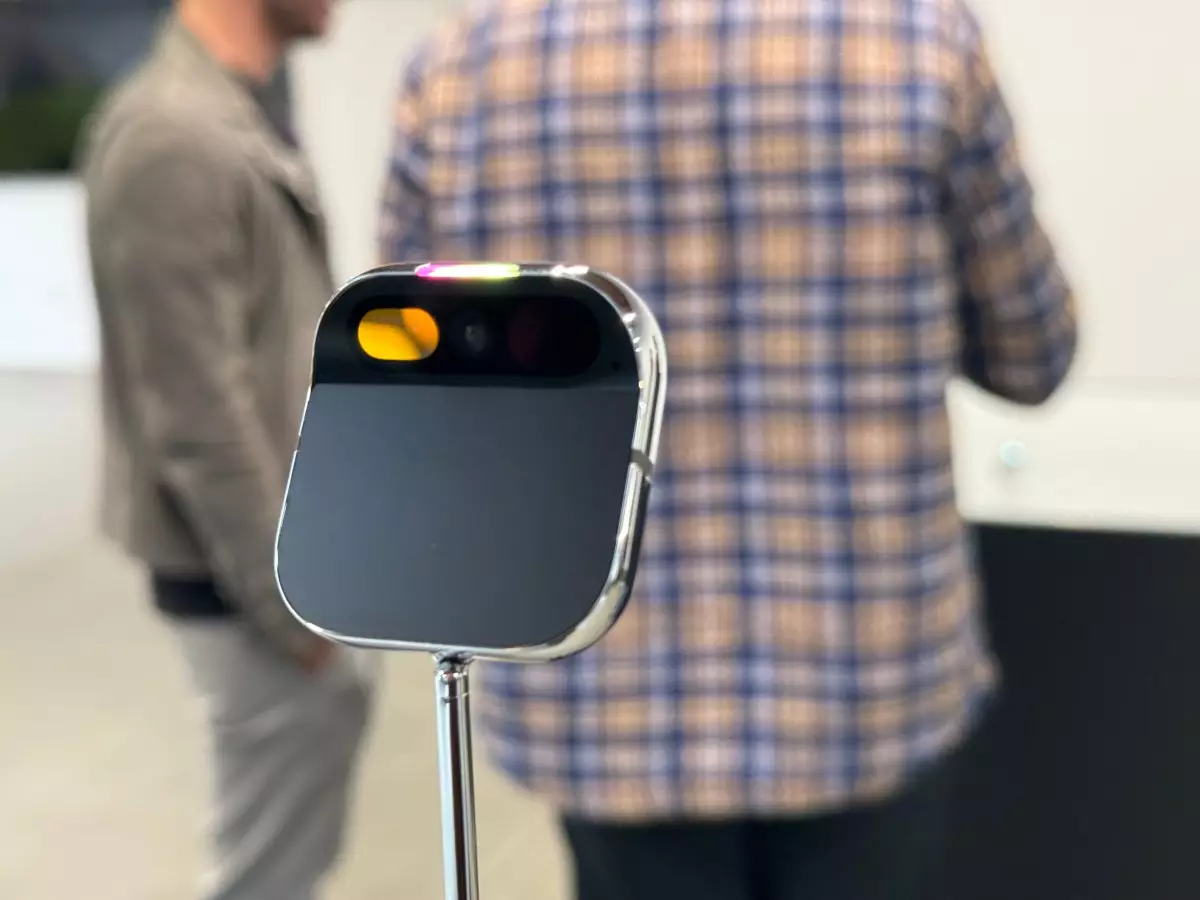In a significant turn of events, HP has acquired Humane, the startup known for its ambitious AI Pin project, for a mere $116 million—a stark contrast to the $240 million raised through venture capital before this acquisition. This development illustrates a striking example of how quickly the tide can turn in the tech landscape. Humane’s promise of revolutionizing wearable technology with its AI Pin has now come crashing down, leading to the immediate cessation of sales for a device once touted as the future of personal tech.
The decision to discontinue the AI Pin—a $499 device—by February 28 marks a precarious boundary for its customers. Many consumers are left stranded as the hardware they purchased will soon lose its connectivity, along with its core features like calling, messaging, and cloud access, once Humane’s servers are shut down. While users who bought it within the last three months may receive a refund, loyalty from earlier customers, who now find themselves with a defunct gadget, goes unrewarded. This scenario raises essential questions about corporate responsibility and consumer rights in a rapidly evolving technology market.
The aftermath of this acquisition also highlighted internal upheaval at Humane itself. Reports indicate that HP fortified its talent reserve by extending enticing job offers to several Humane employees, offering pay increases between 30% and 70%. Conversely, those involved closely with the AI Pin apparently faced layoffs. This trend underscores a broader theme in corporate acquisitions where the merging organization may prioritize its operational workforce while disregarding the continuity or welfare of the acquired firm’s dedicated employees.
Meanwhile, Apple has announced the long-awaited refresh of its iPhone SE. After three years of maintaining the previous version, the new iPhone 16e emerges as a compelling addition to the budget smartphone segment. Sporting an A18 processor, it positions itself as part of an exclusive lineup capable of running the latest Apple Intelligence features, drastically widening its appeal.
Notably, the device ditches the traditional Touch ID in favor of the more contemporary Face ID, aligning with global trends towards biometric security. Additionally, it abandons the Lightning port for a USB-C option, conforming to the increasing standardization in charging and data transfer across devices. Starting at $599, the iPhone 16e aims to cater to a budget-conscious consumer base without sacrificing on performance or innovative features, setting the stage for a highly competitive release as it begins shipping on February 28.
In an unexpected twist, Duolingo recently announced the elimination of its beloved owl mascot, Duo, as part of an audacious marketing campaign. Positioned funnily with a Cybertruck as a backdrop, the move has surprisingly ignited user engagement instead of the anticipated backlash. The campaign is crafted around the slogan “Duo or die,” urging users to complete more lessons in exchange for keeping their favorite character in the spotlight.
This initiative highlights how brands can utilize shock tactics to provoke engagement and create conversations, even when the decisions seem counterintuitive. The effectiveness of this strategy speaks to the evolving landscape of marketing, where bold moves can capture attention and enhance user involvement.
OpenAI is making waves again with its latest decision to “uncensor” ChatGPT, allowing it to present multiple viewpoints on controversial topics without adhering to a singular moral or ethical stance. This shift reflects a larger narrative answering the call for neutrality, providing users the opportunity to consider various perspectives on complex issues. As AI continues to grow, such decisions will play a pivotal role in shaping the relationship users have with these tools.
In another significant development, former OpenAI CTO Mira Murati has unveiled her new venture, Thinking Machines Lab, focusing on creating innovative multimodal systems. Supported by notable figures from OpenAI, this startup aims to further push the boundaries of collaborative AI technologies.
Moreover, Elon Musk’s xAI has released Grok 3, presenting its flagship AI model as a “maximally truth-seeking AI.” Musk’s approach, emphasizing an adversarial relationship with political correctness, introduces a layer of complexity as we ponder ethical boundaries entwined with AI evolution.
Amidst these exciting advancements, tech giants face challenges of their own. Uber’s lawsuit against DoorDash sheds light on competitive practices within the food delivery space, alleging intimidation tactics against restaurant owners. Furthermore, Amazon’s decision to shutter its Android app store illuminates another pivot in corporate focus, leaning towards consolidating resources for its in-house devices.
As tech continues to be at the helm of innovative change, it is crucial to analyze how these developments foster competitive environments, impact consumers, and navigate ethical considerations in an increasingly connected world. While setbacks and transformations can create uncertainty, they also pave the way for new opportunities across the industry.

